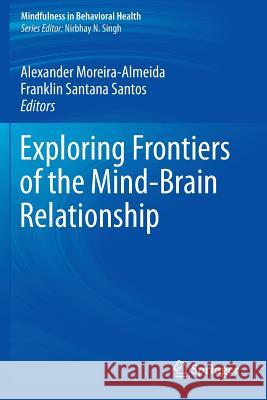Exploring Frontiers of the Mind-Brain Relationship » książka
Exploring Frontiers of the Mind-Brain Relationship
ISBN-13: 9781461460206 / Angielski / Miękka / 2012 / 243 str.
Exploring Frontiers of the Mind-Brain Relationship
ISBN-13: 9781461460206 / Angielski / Miękka / 2012 / 243 str.
(netto: 382,46 VAT: 5%)
Najniższa cena z 30 dni: 385,52
ok. 22 dni roboczych.
Darmowa dostawa!
The conscious mind defines human existence. Many consider the brain as a computer, and they attempt to explain consciousness as emerging at a critical, but unspecified, threshold level of complex computation among neurons. The brain-as-computer model, however, fails to account for phenomenal experience and portrays consciousness as an impotent, after-the-fact epiphenomenon lacking causal power. And the brain-as-computer concept precludes even the remotest possibility of spirituality. As described throughout the history of humankind, seemingly spiritual mental phenomena including transcendent states, near-death and out-of-body experiences, and past-life memories have in recent years been well documented and treated scientifically. In addition, the brain-as-computer approach has been challenged by advocates of quantum brain biology, who are possibly able to explain, scientifically, nonlocal, seemingly spiritual mental states.
Exploring Frontiers of the Mind-Brain Relationship argues against the purely physical analysis of consciousness and for a balanced psychobiological approach. This thought-provoking volume bridges philosophy of mind with science of mind to look empirically at transcendent phenomena, such as mystic states, near-death experiences and past-life memories, that have confounded scientists for decades. Representing disciplines ranging from philosophy and history to neuroimaging and physics, and boasting a panel of expert scientists and physicians, including Andrew Newberg, Peter Fenwick, Stuart Hameroff, Mario Beauregard, Deepak Chopra, and Chris Clarke the book rigorously follows several lines of inquiry into mind-brain controversies, challenging readers to form their own conclusions--or reconsider previous ones. Key coverage includes:- Objections to reductionistic materialism from the philosophical and the scientific tradition.
- Phenomena and the mind-brain problem.
- The neurobiological correlates of meditation and mindfulness.
- The quantum soul, a view from physics.
- Clinical implications of end-of-life experiences.
- Mediumistic experience and the mind-brain relationship.
Wallace Renard Professor of Psychiatry, Genetics, and Psychology,
Washington University School of Medicine
St. Louis MO











